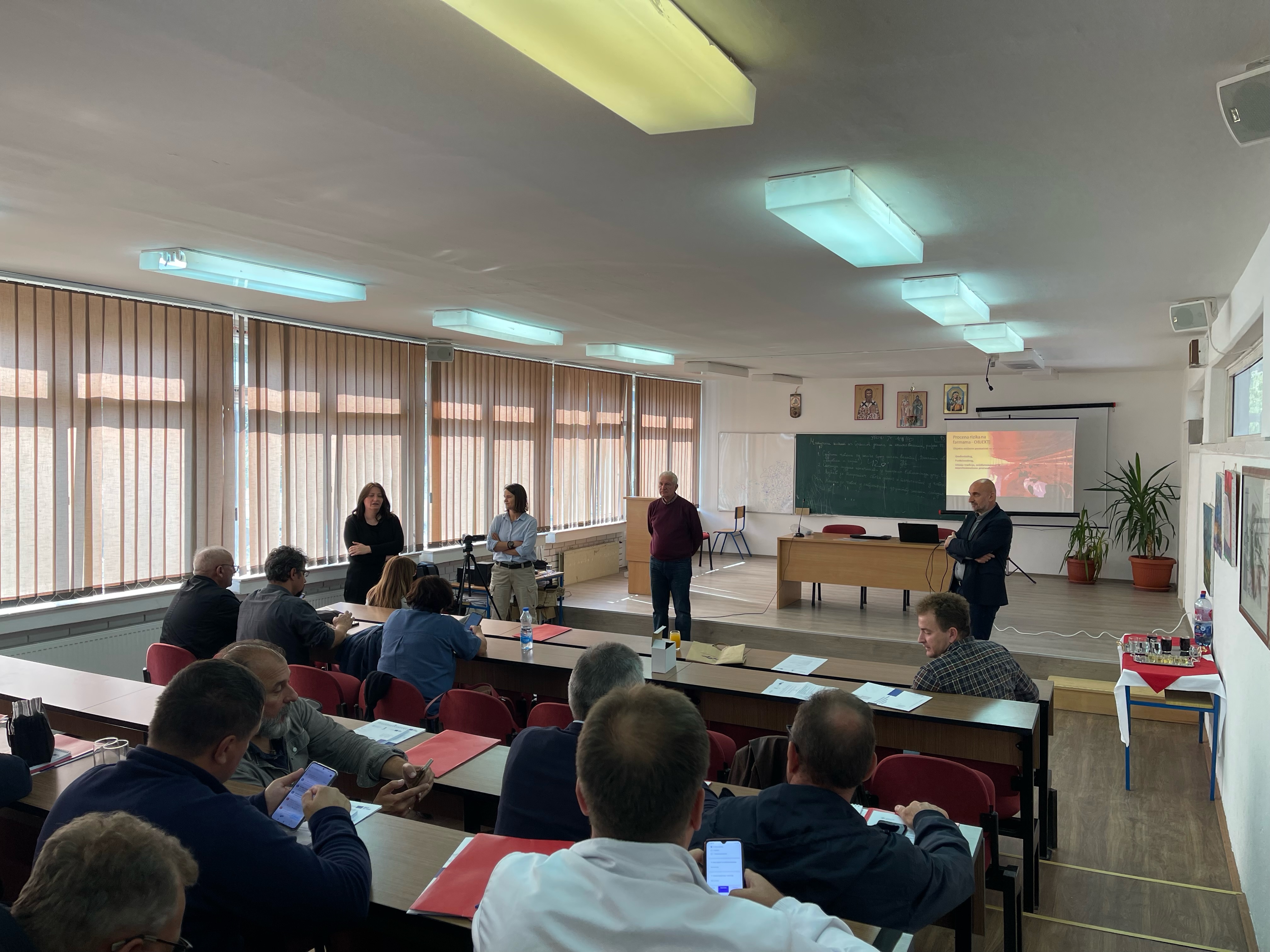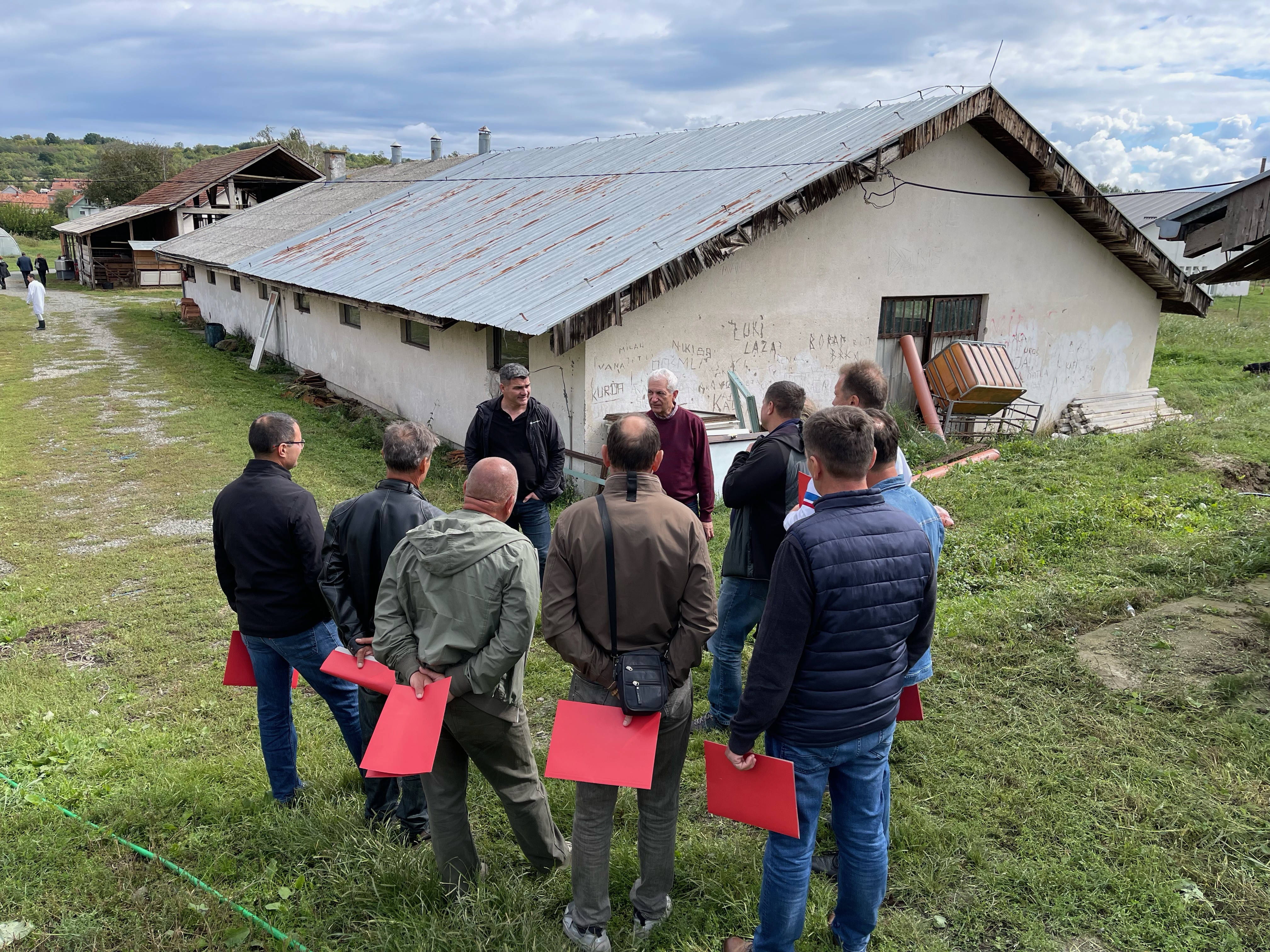Climate change affects animal breeding
Cattle, sheep and pig farms in Serbia face higher production costs and lower income due to climate change. Particularly affected are small and family-owned farms engaged in animal production in less developed areas. In such cases, agricultural advisers play an important role, providing producers with advice and information relevant to life and work in the countryside.
And for advisors to support farmers as good as possible, they themselves need to be knowledgeable about current events and challenges in agriculture. This is why the training about the impact of climate change and adaptation of livestock production was organized by the Ministry of Agriculture, Forestry and Water Management and the Food and Agriculture Organization of the United Nations (FAO), with the support of the European Union.

On September 21, 2022, animal husbandry advisors from more than 20 advisory services gathered at the Secondary Agricultural-Veterinary School in Rekovac, in central Serbia. Through theory and practical work on cattle, sheep and pig farms, advisors learned to assess risks and propose mitigation measures at different stages - from fodder production, animal housing and feeding, to manure disposal. The importance of organic production and preservation of biodiversity in adaptation to climate change were also discussed.
In addition to the professional help they provide, advisory services are important partners in raising awareness of producers and understanding the consequences of climate change. And they are numerous: from lower productivity, over lack of quality animal feed, to greater exposure of animals to new diseases.

Along with new insights and information, several practical proposals came up, too, such as harmonization of incentive funds for the development of animal husbandry with the estimated risks for each farm. Another proposal suggested inclusion of risk assessment as criteria for allocation of funds.
The next training is already in sight. It takes place on October 17, 2022 at a dairy farm in the vicinity of Sombor, where counselors from northern part of Serbia will familiarize with effects of climate change on animal husbandry. It is interesting that this training will also cover the use of energy-efficient technologies, such as biogas, to reduce the costs of milk and meat production.


